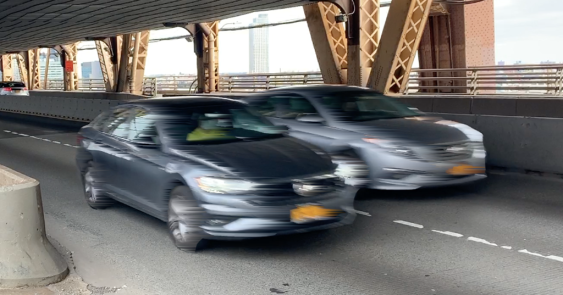It may have been a bit of a long shot anyway, but it's a real bummer that S.B. 961 has been amended to call for new vehicles to install only passive speed governors.
Speed governors - a well-tested, widely deployed technology - can either actively prevent a driver from going over some set speed limit, or passively alert the driver that they are exceeding the limit.
Many new cars already have similar systems to warn drivers when they speed - and those systems can be turned off. More and more vehicles also deploy active speed governors, including a recent test of thousands of municipal vehicles in New York City. Big rigs have used them since the 1990s. The National Highway Traffic Safety Administration (NHTSA) has recommended their widespread deployment since 2012, and the National Traffic Safety Board (NTSB) recently proposed rules to require passive governors on all vehicles nationally.
Senator Scott Wiener accepted amendments removing the call for active systems in the Senate Transportation Committee hearing yesterday, and it's hard to blame him. People freak out at the idea that they may not be able to go fast when they want to (even though it's illegal; even though speed limiting technology includes overrides for merging or passing). Some people will remain opposed to anything that hinders drivers no matter what. Senator Kelly Seyarto (R-Murrieta) claimed that even passive notifications would be a dangerous distraction for speeding drivers who "really need to be paying attention."
But his complaints were just one of a raft of arguments thrown at the bill:
- That the technology is premature, needs better infrastructure first, and won't work because current speed sign systems are inconsistent (not true, said Marc Vukcevich of Streets for All, a sponsor of the bill. The Manual of Uniform Traffic Devices has required consistency for years, and the technology uses GPS anyway)
- That any federal rules would pre-empt California's ("If the federal government were to implement a national rule, I would applaud that," said Senator Wiener. "But they haven't done it yet.")
- Senator Seyarto: "If you're driving the speed limit and everyone around you is going 85 mph, you're a hazard."
- Senator Roger Niello (R-Fair Oaks): "What we need are more cops."
- The Alliance for Automotive Innovation: "It will annoy customers with false warnings that they will find troubling."
What would be great is if the bill required the "passive" warnings to be "passive aggressive," maybe starting out with a sweet voice pointing out the driver is going too fast, and getting more assertive if the behavior continues.
Or there's another way for the "passive" speed limiter to work: it could show up on the outside of the vehicle. As an example, as early as the 1990s pickup trucks in Singapore - where active speed governors are currently required on commercial vehicles - had a light on top of the cab that would spin and flash a yellow light when the driver exceeded the limit. That sort of speed governor should also please the people who believe enforcement is the answer.
The other provision of S.B. 961, which got less attention, calls for side guards on big rigs to prevent injuries and deaths from people and cars rolling underneath them. Yes, there were objections from the industry.
The bill passed on an 8-4 party line vote.
Also passed yesterday were two other bills from Senator Wiener: S.B. 960, the Complete Streets bill (11-4) and S.B. 1031 on Bay Area transit funding (11-4), as well as a prohibition on state funding for Class III bikeways from Senator Catherine Blakespear (D-Encinitas), S.B. 1216. More on those bills in future posts.






